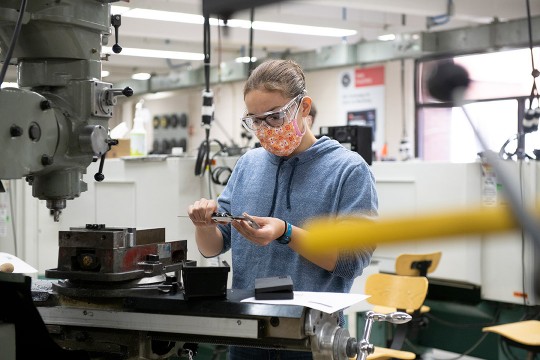
John Wellin
Principal Lecturer
John Wellin
Principal Lecturer
Education
BS, Rochester Institute of Technology; MS, University of Rochester
Bio
Mr. Wellin is a Principal Lecturer in the Department of Mechanical Engineering. He holds a Bachelor of Science degree from the Rochester Institute of Technology with highest honors, and a Master of Science degree from the University of Rochester, both in Mechanical Engineering. He also has an MBA from Saunders College of Business at RIT.
Currently Teaching
In the News
-
September 28, 2020
![student wearing mask and safety glasses calibrating calipers.]()
Batteries included: Engineering Design Tools class transitions from fully onsite to mixed-class structure because of pandemic
Engineering Design Tools, a first-year course, is an example of how RIT’s most applied programs have managed to keep learning as close to hands-on as possible in the age of COVID-19.
-
January 15, 2020
![student playing cardboard prototype of a pinball machine.]()
RIT students create pinball machines for History and Design of Pinball course
As part of an interactive games and media course, 12 RIT students made cardboard and digital pinball machines designed around themes of their own choosing. For the final exam, students brought their creations to The Strong National Museum of Play and had visitors give their physical and virtual pinball machines a test drive.




